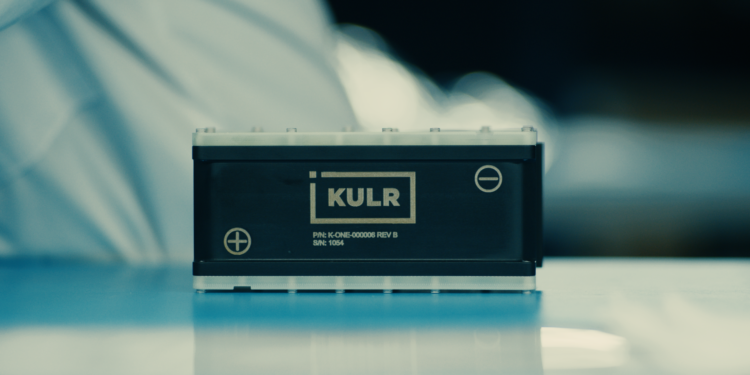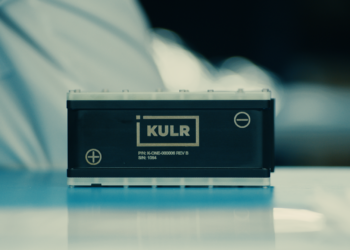kBMS introduces radiation-tolerant design, redundancy, and enhanced efficiency for mission-critical applications
KULR Technology Group (KULR), a Bitcoin+ Treasury company with a portfolio spanning high-performance energy systems and AI robotics, has unveiled its next-generation Battery Management System (kBMS). Engineered for unmatched reliability, safety, and energy efficiency, the kBMS sets a new benchmark for mission-critical applications across defense, terrestrial systems, and spacecraft.
The kBMS is available in two variants: one tailored for defense and terrestrial operations, and another optimized for spacecraft power systems. For space applications, customers can choose between a cost-effective version utilizing commercial chipsets shielded from radiation within housings, or a premium configuration employing radiation-tolerant components. This flexibility provides integrators with scalable options that balance cost, safety, and mission assurance.
“With the launch of the kBMS, our team has built a solution that delivers reliability, safety, and efficiency for mission-critical power systems,” said Peter Hughes, Vice President of Engineering at KULR. “Its analog architecture, radiation-tolerant integration, and redundant hardware give customers confidence their systems will perform under the toughest conditions.”
Key innovations include an analog architecture enabling the use of radiation-tolerant processors, robust firmware combined with redundant hardware to minimize failure risks, and reduced power draw achieved through lower-impedance MOSFETs. Additional features include an isolated communication interface that protects load and power electronics from voltage spikes, as well as a unique recalibration capability that restores accuracy without requiring full replacement, lowering lifecycle costs.
The introduction of kBMS expands KULR’s role beyond thermal management into a full-spectrum battery intelligence provider. With immediate availability for design-in and qualification programs, the platform is expected to accelerate adoption in space, defense, and other sectors where safety, uptime, and resilience are paramount.
You might like this article:Chijet Secures Up to $1 Billion in Expanded Private Placement











